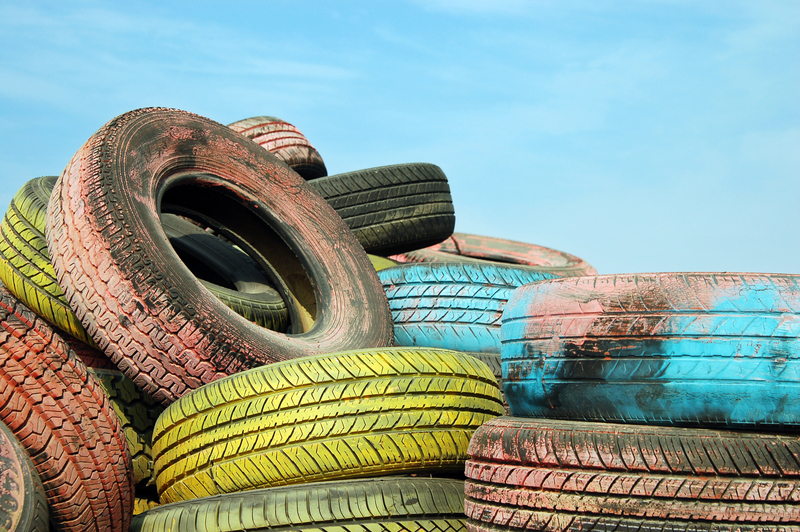Protecting Your Community by Disposing of PPE Waste Responsibly
The outbreak of the COVID-19 pandemic revolutionized public health standards, making personal protective equipment, or PPE, a daily necessity. With the widespread use of face masks, gloves, and other protective items, the rise in PPE waste has become a pressing concern. Responsible disposal of PPE waste is not just a matter of personal safety--it's a vital step in protecting your community and preserving our environment.
Why Responsible PPE Waste Disposal Matters
Improper disposal of PPE, such as tossing masks or gloves on the ground, poses serious risks to both public health and the environment. During infectious disease outbreaks like COVID-19, PPE items may carry pathogens, increasing the chance of disease transmission if not managed correctly. On an environmental front, many PPE products are made of non-biodegradable materials, contributing to plastic pollution and harming wildlife if not disposed of responsibly.
The Impact of PPE Waste on Communities
- Health Risks: Improperly disposed PPE can become a source of contamination, putting sanitation workers and the general public at risk.
- Litter and Pollution: PPE on city streets, parks, or waterways spoils natural beauty and impacts wildlife through ingestion or entanglement.
- Drainage Blockage: Masks and gloves can clog sewers and drainage systems, worsening urban flooding and sanitation issues.

Understanding the Types of PPE Waste
Before discussing practical steps, it's essential to recognize the various types of PPE waste commonly generated in communities:
- Disposable Face Masks: Typically made from polypropylene polymers, these masks don't degrade easily.
- Gloves: Often manufactured from latex, vinyl, or nitrile, gloves are used across industries and in homes.
- Face Shields & Goggles: Usually reusable but sometimes discarded as waste due to contamination.
- Suits and Gowns: Used in health care and sometimes at the community level for extra protection.
Where Does PPE Waste Usually End Up?
*Unfortunately, a significant portion of PPE waste* ends up in:
- Landfills, where they remain for hundreds of years
- Oceans and local waterways, causing marine pollution
- Street litter, leading to visual and health hazards
Essential Steps for Responsible PPE Waste Disposal
Adopting best practices for PPE waste management helps protect your community and foster a cleaner, safer environment. Here are actionable steps you can take:
1. Always Discard PPE in a Bin
- Use designated waste bins for PPE at home, work, schools, and public areas.
- If a special PPE waste bin is unavailable, wrap used PPE in a plastic bag before disposing of it in the general waste bin.
- Avoid littering masks or gloves in open or natural spaces.
2. Separate PPE Waste from Recyclables
- Do not dispose of PPE in recycling bins. Most single-use PPE is non-recyclable and can contaminate recyclable materials.
- If your local authority provides a dedicated PPE waste program, use it accordingly.
3. Cut the Ear Loops on Face Masks
- Before throwing away disposable masks, cut the ear loops to prevent wildlife from getting entangled.
4. Wash Your Hands After Handling Used PPE
- Dispose of used PPE carefully and wash your hands immediately after to minimize any risk of infection.
5. Support and Use Community PPE Disposal Initiatives
- Look for community campaigns or collection points for responsible PPE disposal.
- Participate in public education or local drives that promote correct PPE waste disposal methods.
Eco-Friendly Alternatives and Solutions
While proper disposal is essential, reducing the generation of PPE waste is equally important in protecting your community. Consider these sustainable alternatives and strategies:
Reusable PPE Options
- Cloth Masks: Washable, reusable, and effective for general public use.
- Reusable Gloves: For non-medical settings, consider durable, washable gloves.
Recycling Programs for PPE Waste
- Some companies and local governments are piloting PPE-specific recycling schemes. Check with your local authorities for drop-off points or collection programs.
- Specialized firms like TerraCycle offer programs to recycle PPE waste for businesses, schools, and healthcare providers.
Encouraging Corporate and Community Responsibility
- Request your local government or employer to provide PPE waste bins.
- Raise awareness through posters, social media, and community meetings.
- Organize community clean-up days, focusing on the removal and safe disposal of PPE litter.
How Improper PPE Disposal Impacts the Environment
Disposing of PPE waste irresponsibly affects more than just visual aesthetics--it damages entire ecosystems.
- Marine Pollution: PPE travels from streets to drains, eventually reaching rivers and oceans, where it poses a fatal risk to marine life.
- Microplastic Threat: As masks and gloves break down, they release microplastics that infiltrate food chains, threatening wildlife and human health.
- Wildlife Hazards: Birds, fish, and other animals can become entangled or choke on PPE waste.
Community Success Stories: Leading by Example
Many communities worldwide are tackling the PPE waste crisis head-on:
- Citywide Collection Schemes: London and New York piloted PPE-specific bins in public places, drastically reducing street litter.
- Public Awareness Campaigns: Local health departments in Singapore launched campaigns emphasizing the importance of cutting mask loops and proper disposal.
- Innovative Recycling Initiatives: Taiwan invested in recycling PPE to produce park benches, reducing waste and enhancing public spaces.
Legal Guidelines for PPE Disposal
Government and health agencies such as the Centers for Disease Control and Prevention (CDC), Environmental Protection Agency (EPA), and World Health Organization (WHO) provide guidance on the disposal of potentially infectious waste. Follow these tips:
- Do not dispose of PPE waste in nature or waterways - it may be subject to fines.
- If you or someone in your household is infected or quarantining, double-bag all PPE waste and store it securely for at least 72 hours before collection, as recommended by authorities.
- Encourage your community to adopt these guidelines to improve waste management.
Check your local regulations regularly for updates on safe PPE waste disposal.
The Role of Individual Responsibility in Community Protection
Every member of the community plays a crucial role in minimizing PPE waste impact:
- Educate yourself and others on responsible disposal habits.
- Lead by example--dispose of your PPE correctly, and encourage friends and family to do the same.
- Report improper disposal or overflowing public bins to local authorities.
Future Directions: Innovations in PPE Waste Disposal
As PPE waste continues to challenge communities and the environment, innovative solutions are emerging. Here are some promising developments:
- Biodegradable PPE: Researchers are developing masks and gloves from natural polymers that biodegrade more quickly and safely.
- PPE Recycling Technology: Start-ups are creating machines that sterilize and shred PPE, making it suitable for recycling into construction materials and plastic products.
- Smart Collection Systems: Some cities are trialing sensor-based bins that alert authorities when PPE waste needs collecting, preventing overflow and litter.
A Call to Action
Protecting your community by disposing of PPE waste responsibly is not just an individual act--it's a powerful way to safeguard public health, shield the environment, and build a culture of care. By adopting best practices, supporting local initiatives, and advocating for sustainable innovation, you help ensure that today's solutions build a safer tomorrow.

FAQs about Responsible PPE Waste Disposal
Q: Can I recycle my disposable face mask?
A: In most cases, disposable masks are not recyclable in standard household recycling bins due to hygiene concerns and material type. Look for special PPE recycling programs in your locality.
Q: What should I do if I see PPE litter in public spaces?
A: Report it to local sanitation authorities. If you choose to clean it up yourself, wear gloves, use a litter picker, and dispose of the waste according to guidelines. Always wash your hands afterward.
Q: Are cloth masks a viable alternative?
A: Yes. *Cloth masks are recommended for general use in many regions*. They can be washed and reused, making them eco-friendly PPE alternatives.
Q: What happens if I flush masks or gloves down the toilet?
A: This can block plumbing and pollute water systems. Always dispose of PPE in the trash, never in the toilet or sink.
Conclusion
Proper PPE waste management is one of the simplest yet most powerful ways to protect your community and the environment. As we navigate public health challenges now and in the future, let's remember--every mask and glove disposed of responsibly makes a difference. Stay informed, act conscientiously, and inspire others to join in this important mission for a healthier planet and safer community.
Let's act responsibly--together!
